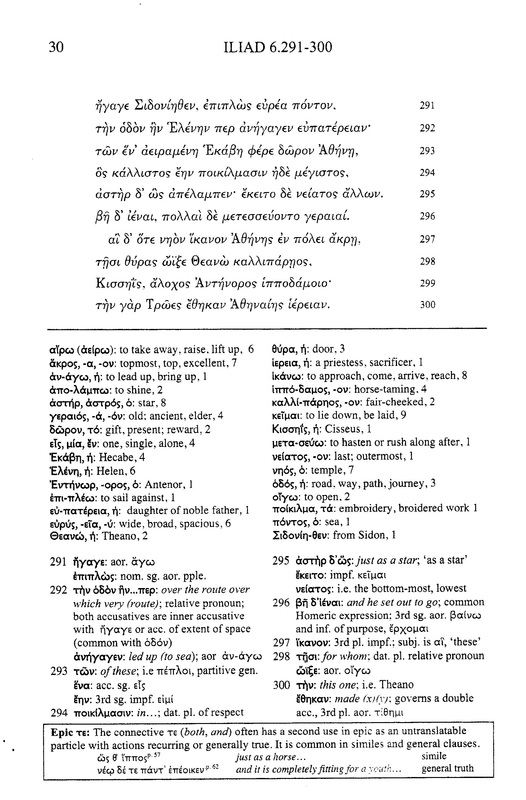Keeping Your Hand In
|
My reason for learning Latin, and for continuing to learn Latin, is to read with enjoyment, and hopefully some appreciation, what the Romans wrote. I've always felt it incumbent upon me as a teacher to read ancient authors regularly, in order to provide my pupils, especially potential scholars, with a better service than I would do if I simply allowed stagnation to set in. Latin is so much more than merely a mental exercise. The same applies to Greek, which can easily get rusty if you allow it to.
Reading Greek authors in my youth was an arduous and glacially slow operation. Spread before me would be the text, an English crib, a commentary which rarely gave adequate linguistic back-up, a decent Greek grammar, a middle Liddell, and a copy of Marinone's All the Greek Verbs. It all constituted a considerable desktop footprint. Sounds familiar? Things have moved on since the early 70s, of course. A click on the word of an on-line text these days will parse it, give its meaning, and even its frequency of occurrence in the canonical literature. A former pupil of mine who is enjoying a glittering academic career (Cambridge, Harvard and Yale) recently had reason to read all of the Iliad, which she managed, using efficient modern technology, in a fortnight. I still prefer an old-fashioned book, and learned printed editions, though there is never enough room on my bookshelves for the latest acquisition. I've recently been brushing up my Plato and Homer, and in this age of e-books and print-on-demand I thought that I would share with Broadsheet readers a series of publications ideally suited to the prep school Classics teacher who wants to keep his or her hand in, linguistically speaking. Understanding what the words mean and how they fit together is of course the inescapable prerequisite to any enjoyment and literary appreciation. I came upon this series through The Classics Library, an excellent on-line forum for enthusiasts set up five years ago. The apparently indefatigable author is Geoffrey Steadman, who works in Tennessee. The avowed aim is to bring readers to a rapid understanding of the text by providing helpful lexical and grammatical guidance on the same page. The typesetting is a work of art, as you can see from the homeric sample illustrated. A section of the Oxford text appears at the top of each page, beneath which is the lexical help. Beneath the lexical help is a grammatical commentary. Sometimes there is enough space at the bottom for a textbox to elucidate a particular grammatical point. If only such things had existed in my youth! Initially I downloaded some of these as free .pdfs which I swiped through on my tablet. Each volume is very thorough, containing notes on the language and a listing of the most commonly occurring vocabulary items. Also downloadable are electronic vocabulary flashcards in .jpeg or .ppt format. I then decided to invest in a hard copy via Amazon, not just as a token of support for the author, but because I still prefer to flick back and forth through a book rather than doing the same on-screen. Some Caesar is available, but this is mainly a Greek resource. The texts available at the time of writing are Odyssey 6-8, Odyssey 9-12, Iliad 6 and 22, Herodotus 1, Herodotus 7, Symposium, Republic 1, Crito, Lysias 1, Oedipus Tyrannus and Cebes. Modern technology means of course that minor typos and slips, once brought to the author's attention, are rapidly corrected both on-line and in the print-on-demand hard copies. Further details of this excellent series, which has an international following, can most conveniently be found at http://geoffreysteadman.com/. I recommend these volumes as a painless way of reacquainting yourself with real Greek. |

